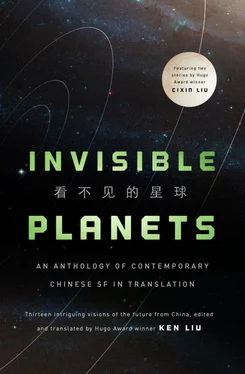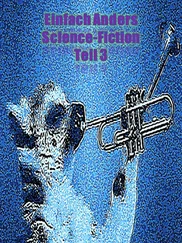* * *
Chinese science fiction was born at the turn of the twentieth century, when the Qing dynasty was teetering on the edge of ruin. At the time, Chinese intellectuals were entranced by and curious about Western science and technology, and thought of such knowledge as the only hope for saving the nation from poverty, weakness, and general backwardness. Many works popularizing and speculating about science were published, including works of science fiction. One of the leaders of the failed Hundred Days’ Reform (June 11–September 21, 1898), the renowned scholar Liang Qichao, wrote a science fiction story called “A Chronicle of the Future of New China.” In it, he imagined a Shanghai World’s Fair—a vision that would not become true until 2010.
Like most genres of literary expression, science fiction in China was subject to instrumentalist impulses and had to serve practical goals. At its birth, it became a tool of propaganda for the Chinese who dreamed of a strong China free of colonial depredations. Thus, science fiction works from the end of the Qing dynasty and the early Republican years almost always presented a future in which China was strong, prosperous, and advanced, a nation which the world respected rather than subjugated.
After the founding of the People’s Republic in 1949, science fiction became a tool for popularizing scientific knowledge, and its main intended readers were children. Most of these stories put technology at the core and contained little humanism, featuring simplistic characters and basic, even naïve literary techniques. Few of the novels ventured outside the orbit of Mars, and most stuck to the near future. In these works, science and technology were always presented as positive forces, and the technological future was always bright.
An interesting observation can be made when one surveys the science fiction published during this period. In the early years after the Communist Revolution, politics and revolutionary fervor infused every aspect of daily life, and the very air one breathed seemed filled with propaganda for Communist ideals. Given this context, one might have expected that science fiction would also be filled with descriptions of Communist utopias of the future. But as a matter of fact, not a single work of this type can be found. There were practically no science fiction stories that featured Communism as the subject, not even simplistic sketches to promote the concept.
By the 1980s, as Deng Xiaoping’s reforms took effect, the influence of Western science fiction on Chinese science fiction became more apparent. Chinese science fiction writers and critics began to debate whether science fiction was more about “science” or “fiction,” and ultimately the literary camp won out. The debate had tremendous influence on the direction of the future development of Chinese science fiction, and in some ways can be seen as a delayed Chinese response to the New Wave movement in the West. Science fiction was finally able to escape the fate of being a mere tool to serve the goal of popularizing science, and could develop in new directions.
During the period between the mid-1990s and now, Chinese science fiction experienced a renaissance. New writers and their fresh ideas had little connection to the last century, and as Chinese science fiction became more diverse, it also began to lose its distinctness as particularly “Chinese.” Contemporary Chinese science fiction is becoming more similar to world science fiction, and styles and subjects that have been explored by American writers, for instance, can find easy analogs in Chinese science fiction.
It’s interesting to note that the optimism toward science that underlay much of last century’s Chinese science fiction has almost completely vanished. Contemporary science fiction reflects much suspicion and anxiety about technological progress, and the futures portrayed in these works are dark and uncertain. Even if a bright future appears occasionally, it comes only after much suffering and a tortuous path.
* * *
At the time of Three-Body ’s publication, China’s science fiction market was anxious and depressed. The long marginalization of science fiction as a genre led to a small and insular readership. Fans saw themselves as a tribe on an island and felt misunderstood by outsiders. Writers struggled to attract readers outside the tribe and felt they had to give up their Campbellian “science fiction fundamentalism” and raise the genre’s literary qualities and realism.
The first two volumes of Three-Body show some efforts made in this direction. Much of the first volume was set during the Cultural Revolution, and in the second volume, the China of the future still existed under sociopolitical institutions similar to the present. These were attempts to increase the sense of realism for readers, to give the speculative elements some foundation in the present. As a result, both my publisher and I had little faith in the third volume prior to its publication. As the story continued to develop, it was impossible to root the third volume in present realities, and I had to describe distant futures and distant corners of the cosmos—and by consensus, Chinese readers were not interested in such things.
My publisher and I reached the conclusion that since it was impossible for the third volume to succeed in the market, maybe it was best to give up trying to attract readers who were not already science fiction fans. Instead, I would write a “pure” science fiction novel, which I found comforting, as I considered myself a hard-core fan. And so I wrote the third volume for myself and filled it with multidimensional and two-dimensional universes, artificial black holes and mini-universes, and I extended the time line to the heat death of the universe.
And to our utter surprise, it was this third volume, written only for science fiction fans, which led to the popularity of the series as a whole.
The experience of Three-Body caused science fiction writers and critics to reevaluate Chinese science fiction and China. They realized they had been ignoring changes in the thinking patterns of Chinese readers. As modernization accelerated its pace, the new generation of readers no longer confined their thoughts to the narrow present as their parents did, but were interested in the future and the wide-open cosmos. The China of the present is a bit like America during science fiction’s Golden Age, when science and technology filled the future with wonder, presenting both great crises and grand opportunities. This is rich soil for the growth and flourishing of science fiction.
* * *
Science fiction is a literature of possibilities. The universe we live in is also one of countless possibilities. For humanity, some universes are better than others, and Three-Body shows the worst of all possible universes, a universe in which existence is as dark and harsh as one can imagine.
Not long ago, Canadian writer Robert Sawyer came to China, and when he discussed Three-Body, he attributed my choice of the worst of all possible universes to the historical experience of China and the Chinese people. As a Canadian, he argued that he had an optimistic view of the future relationship between humans and extraterrestrials.
I don’t agree with this analysis. In the Chinese science fiction of the last century, the universe was a kind place, and most extraterrestrials appeared as friends or mentors, who, endowed with Godlike patience and forbearance, pointed out the correct path for us, a lost flock of sheep. In Jin Tao’s Moonlight Island, for example, the extraterrestrials soothed the spiritual trauma of the Chinese who experienced the Cultural Revolution. In Tong Enzheng’s Distant Love, the human-alien romance was portrayed as poignant and magnificent. In Zheng Wenguang’s Reflections of Earth, humanity was seen as so morally corrupt that gentle, morally refined aliens were terrified and had to run away, despite their possession of far superior technology.
Читать дальше












